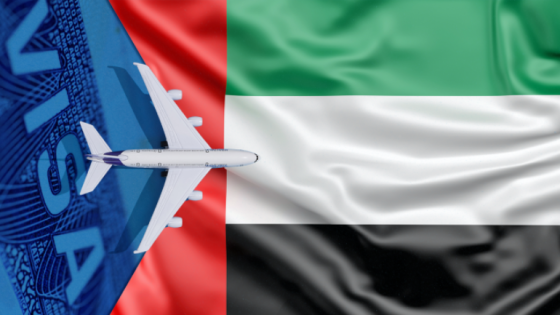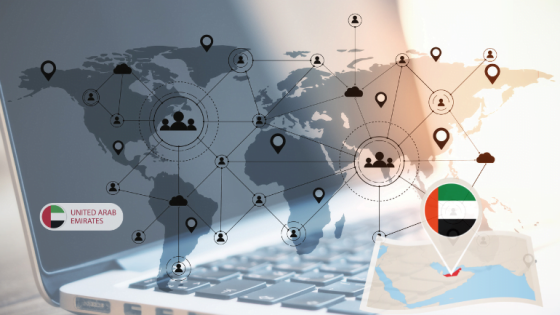Contents
The United Arab Emirates is one of the first Arab and international countries to attract a large number of young people and workers from all countries throughout the year in order to obtain good job opportunities. All this is the result of UAE work benefits, service benefits, retirement benefits, and insurance benefits in the UAE, the facilities available, and the good financial return. Learn about UAE work benefits packages, mandatory employee benefits in UAE, and all the details on this subject.
What are the benefits of working in the UAE?
Working in the UAE has become the dream of many young people because of the mandatory employee benefits offered by job opportunities, the luxurious nature of living, and the promising future that the worker aspires to for himself and his family. There are several benefits of working in the UAE and 10 important advantages to have a job in the Emirates:
- UAE has a Tax-free income:
One of the biggest advantagesand benefits of working in the UAE is that there is no personal income tax. This means that employees can take home their entire salary without any deductions.
- High salaries:
The UAE offers competitive salaries, especially in sectors such as finance, oil and gas, and technology. This allows employees to earn a higher income compared to many other countries.
- Career growth opportunities:
The UAE has a rapidly growing economy and is known for its business-friendly environment. This provides ample opportunities for career growth and advancement, with many multinational companies having a presence in the country.
- Multicultural environment:
The UAE is a melting pot of cultures, with people from various nationalities living and working together. This multicultural environment provides an opportunity to learn about different cultures, languages, and perspectives.
- World-class infrastructure:
The UAE has invested heavily in developing state-of-the-art infrastructure, including modern cities, transportation systems, healthcare facilities, and educational institutions. This ensures a high standard of living for residents.
- Safety and security:
One of the most important benefits of working in The UAE is considered one of the safest countries in the world with low crime rates. This provides a sense of security for individuals and their families.
- Quality healthcare:
The UAE has excellent healthcare facilities with world-class hospitals and medical professionals. Employees can access quality healthcare services for themselves and their dependents.
- Work-life balance:
Many companies in the UAE prioritize work-life balance by offering flexible working hours, generous annual leave allowances, and family-friendly policies.
- Travel opportunities:
The UAE’s central location makes it an ideal hub for travel within the region and beyond. Employees can easily explore nearby countries during holidays or weekends.
- Cultural experiences:
One of the most important UAE work benefits is that it allows individuals to immerse themselves in Arabian culture while also experiencing international influences due to its diverse population.
It is important to note that the allowances and benefits offered by employers may vary depending on the specific job, industry, and company an individual works for in the UAE.
Read more: “dress code in UAE offices: learn about it’s policy in Dubai, and the consequences for breaking it“
Employment opportunities in UAE/UAE work benefits
There are various employment opportunities and employee benefits in the UAE across different sectors. Some of the prominent industries that offer job opportunities in the UAE include:
- Oil and Gas: The UAE is known for its oil and gas industry, which provides numerous job opportunities for engineers, technicians, and professionals in related fields.
- Construction: With ongoing infrastructure development projects, there is a high demand for construction workers, architects, engineers, project managers, and other professionals in the construction industry.
- Finance and Banking: Dubai is a major financial hub in the region, offering employment opportunities in banking, finance, accounting, and insurance sectors.
- Hospitality and Tourism: The UAE’s booming tourism industry creates job opportunities in hotels, resorts, restaurants, travel agencies, event management companies, and other related sectors.
- Healthcare: The healthcare sector in the UAE is rapidly growing with the establishment of world-class hospitals and medical centers. There is a demand for doctors, nurses, pharmacists, technicians, and other healthcare professionals.
- Information Technology: The UAE has been investing heavily in technology infrastructure and digital transformation initiatives. This has led to an increased demand for IT professionals across various domains such as software development, cybersecurity, data analytics, cloud computing, etc.
- Education: The UAE has a strong focus on education with numerous international schools and universities. Teaching positions are available for qualified educators across different subjects and levels.
- Retail: The retail sector is thriving in the UAE due to its large consumer base. Job opportunities exist in sales roles as well as management positions within retail chains or malls.
- Aviation: With major airlines like Emirates based in Dubai and Abu Dhabi’s Etihad Airways operating globally from the UAE airports; there are employment opportunities for pilots, cabin crew members as well as ground staff.
- Media and Marketing: Dubai has become a regional hub for media production companies and advertising agencies offering jobs in journalism, broadcasting, marketing, public relations, and digital media.
The UAE has specific regulations for employment, including visa requirements and UAE labor law. It is advisable to research and understand these regulations before seeking employment opportunities in the country.
You may be interested in: “UAE business ethics, learn about the basic etiquette to work in the Emirate“
Mandatory employee benefits in UAE

In the United Arab Emirates (UAE), there are several mandatory employee benefits that employers are required to provide to their employees. Mandatory employee benefits in UAE include:
- End of Service Gratuity:
Employers must pay a gratuity to employees who have completed at least one year of continuous service. The gratuity is calculated based on the employee’s length of service and final salary (AED).
- Annual Leave:
Employees are entitled to annual leave, which varies depending on their length of service. Employees who have completed less than one year of service are entitled to two days of leave per month, while those who have completed more than one year are entitled to 30 days of leave per year.
- Sick Leave:
Employees are entitled to sick leave with full pay for up to 15 days per year, after completing three months of continuous service. After this period, sick leave can be granted with half pay for up to 30 days per year.
- Maternity Leave:
Female employees are entitled to maternity leave with full pay for a period of 45 days, including the time before and after childbirth. This can be extended for an additional 100 days without pay.
- Health Insurance:
Employers must provide health insurance coverage for their employees, as mandated by the UAE government. This coverage should include basic medical services and emergency care.
- Workmen’s Compensation Insurance:
Employers are required to provide workman’s compensation insurance coverage for their employees in case of work-related injuries or illnesses.
- Public Holidays:
Employees are entitled to paid leave on public holidays as declared by the UAE government.
It is important for both employers and employees in the UAE to be aware of these mandatory benefits and ensure compliance with the labor laws in the country.
Our pick for you: “Leadership Development in UAE; Leadership Program Training Courses in Dubai“
What are the typical working hours in the UAE?
The typical working hours in the UAE vary depending on the sector and company. However, the standard working week in the UAE is from Sunday to Thursday, with Friday and Saturday being the official weekend.
In government offices and most private companies, the working hours are usually from 8:00 AM to 6:00 PM, with a lunch break of one to two hours between 1:00 PM and 3:00 PM. Some companies may have slightly different timings, such as starting at 9:00 AM or finishing at 5:00 PM. During the holy month of Ramadan, working hours are generally reduced by two hours per day for both Muslims and non-Muslims.
This is in accordance with UAE labour law that aim to accommodate fasting employees. certain industries like retail, hospitality, healthcare, and transportation may have different working hour patterns due to their nature of operations.
Additionally, some companies may offer flexible working hours or shift work depending on their specific requirements.
Are there any public holidays that employees get off in the UAE?
Yes, there are several public holidays in the UAE where employees get the day off. Some of the major public holidays include:
New Year’s Day (Jan1).
Eid Al Fitr (celebrated at the end of Ramadan, dates vary each year).
Arafat Day (9th day of Dhu al-Hijjah, dates vary each year).
Eid Al Adha (Feast of Sacrifice, dates vary each year).
Hijri New Year (Islamic New Year, based on the Islamic lunar calendar).
Prophet Muhammad’s Birthday (celebrated on the 12th day of Rabi’ al-awwal, based on the Islamic lunar calendar).
National Day (Dec 2).
These holidays may vary slightly depending on the moon sighting and are subject to change as per government announcements.
How many days of annual leave are employees entitled to in the UAE?
In the UAE, employees are entitled to a minimum of 30 days of annual leave. This is applicable to both public and private sector employees who have completed at least one year of continuous service with their employer.
UAE work benefits are numerous and attractive to many people. Therefore, the number of travelers and the population is constantly increasing in this country, and development and the nature of life have contributed to making it one of the most important Arab and international countries and the most common in terms of the increasing number of workers and good job opportunities.













